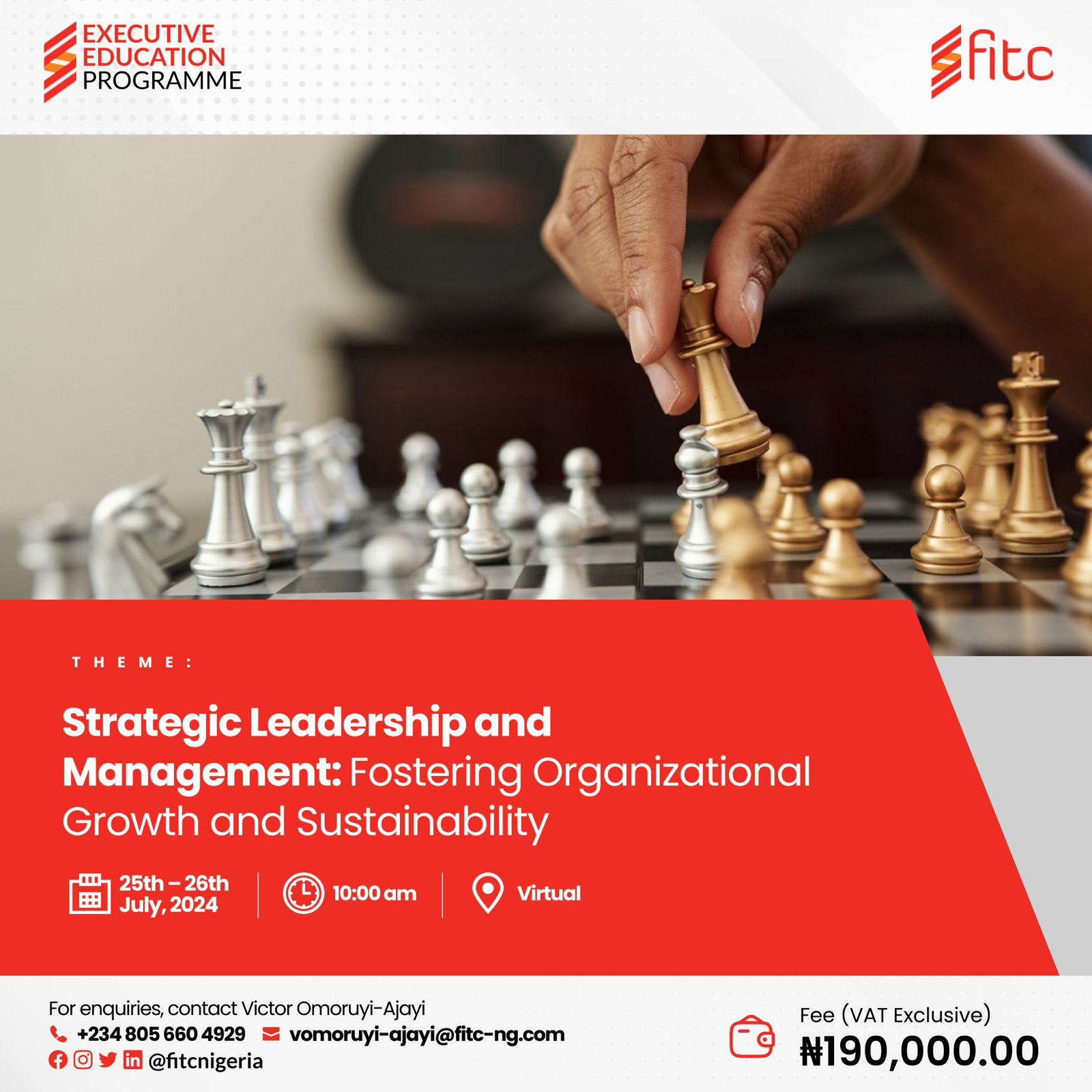Strategic Leadership and Management: Fostering Organizational Growth and Sustainability

Background
The evolving economic landscape, characterized by rapid technological advancements and shifting market dynamics, has placed increased pressure on organizations to adapt and innovate. Strategic leadership and management have become paramount in guiding organizations through these complexities. Leaders are now required to possess a forward-thinking mindset and the ability to anticipate future trends, ensuring that their organizations remain competitive and resilient.
Recent trends such as globalization, digital transformation, and heightened consumer awareness of environmental and social issues have reshaped the way organizations operate. Executives and senior managers must now integrate sustainability into their core strategies, balancing profit with purpose. The ability to innovate while maintaining ethical standards and contributing to the broader societal good has become a benchmark for successful leadership. Economic volatility and uncertainty further underscore the importance of strategic leadership. Organizations are facing unprecedented challenges, from supply chain disruptions to fluctuating market demands.
Therefore, the programme is designed to enable the executives and leaders gain more comprehensive understanding of how to drive growth through strategic planning, innovation, and sustainable practices, ensuring their organizations thrive in both the short and long term. It also provides critical insights and technical knowledge for leadership adaptation towards strategic decision-making, risk management, and resource allocation to navigate business disruptions.
Target Audience
- This programme is designed for C-suite executives, senior managers, and leaders who are responsible for strategic decision-making, growth, and sustainability, and are expected to drive the organization’s direction and success.
Learning Outcomes
At the end of the programme, participants will have the following:
- Acquire skills in strategic thinking, scenario planning, and decision-making under uncertainty, enabling them to guide their organizations towards achieving long-term objectives.
- Gain comprehensive knowledge of key management practices necessary for translating strategic goals into operational success, such as, resource allocation, process optimization, performance management, and financial planning.
- Foster a culture of sustainability and continuous improvement within the organization.
Learning Objectives
- Acquire practical leadership techniques that promote team cohesion, employee engagement, and organizational commitment.
- Be equipped with the skills to manage resources efficiently, including human capital, financial assets, and operational processes.
- Explore methods for fostering a culture of innovation, identifying sustainable business practices, and measuring the impact of sustainability initiatives on organizational performance and reputation
- Analyze complex business environments to identify opportunities and threats.
Focus Area
- Overview of Strategic Leadership and Management
- Defining strategic leadership and management
- Understanding the role of leaders in driving growth and sustainability
- Exploring the key challenges and trends in today’s business landscape
2. Strategic Planning and Execution
- Understanding the strategic planning process and its importance in organizational growth.
- Developing a vision and mission that aligns with the organization’s goals.
- Setting strategic objectives and key performance indicators (KPIs) to measure success.
- Executing strategic plans through effective resource allocation and performance management.
3. Leadership and Organizational Culture
- Examining the role of leadership in shaping organizational culture and driving change.
- Developing leadership styles that promote innovation and employee engagement.
- Building high-performance teams through effective communication and collaboration.
- Fostering a culture of continuous improvement and learning within the organization.
4. Innovation, Strategic Risk and Change Management
- Identifying and nurturing innovative ideas within the organization.
- Implementing change management strategies to navigate organizational transitions.
- Leveraging technology and digital transformation for competitive advantage.
- Overcoming resistance to change and building resilience in the workforce.
- Identifying and assessing strategic risks that can impact organizational growth.
- Developing risk mitigation strategies and contingency plans.
5. Sustainability and Corporate Social Responsibility
- Understanding the principles of sustainability and their impact on business practices.
- Integrating sustainable practices into the organization’s strategic plan.
- Measuring and reporting on sustainability performance and impact.
- Engaging stakeholders in sustainability initiatives and corporate social responsibility (CSR).
6. Financial Management and Strategic Decision-Making
- Analyzing financial statements to inform strategic decisions.
- Managing budgets and financial resources to support strategic initiatives.
- Evaluating investment opportunities and assessing risks.
- Aligning financial strategies with long-term organizational goals.
Loading…







